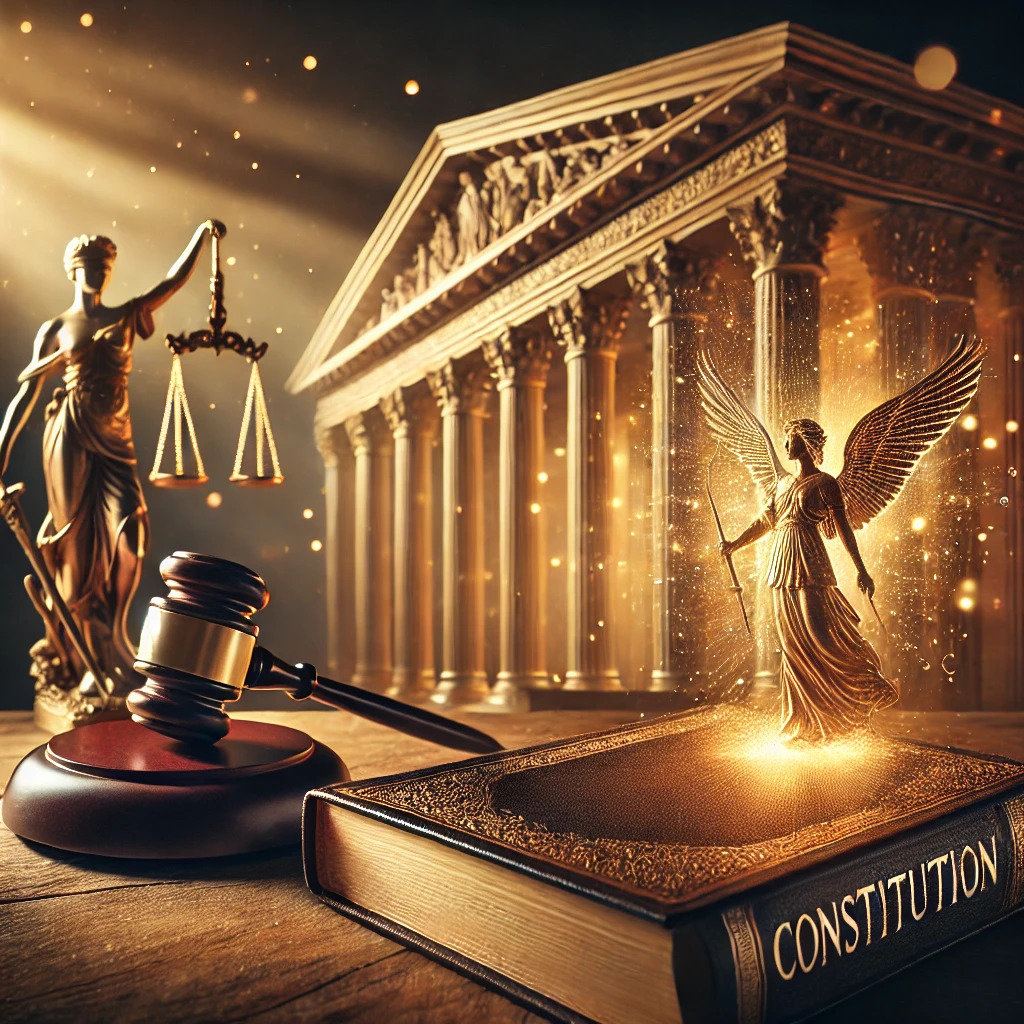View News
The-Role-of-the-Supreme-Court-in-Interpreting-the-Constitution

|
The Role of the Supreme Court in Interpreting the Constitution By Sura Anjana Srimayi INTRODUCTIONThe Supreme Court serves as the principal judicial authority responsible for interpreting and enforcing the Constitution. As the guardian of constitutional principles, it ensures that the legislative and executive branches operate within their constitutional boundaries, safeguarding justice, equality, and individual rights. Beyond its traditional role in legal adjudication, the Supreme Court significantly influences economic policy by shaping property rights, contract law, and regulatory frameworks. Its rulings impact market dynamics, investment climates, and economic stability, making it a cornerstone of both legal and economic governance. This article explores the multifaceted role of the Supreme Court in interpreting the Constitution and its consequential effects on economic development and societal well-being. THE ROLE OF THE SUPREME COURT1. Interpretation of Property RightsProperty rights are fundamental to a functioning market economy as they provide individuals and businesses with the security and incentives needed to invest and innovate. The Supreme Court plays a pivotal role in defining the scope and limitations of property rights through its rulings on eminent domain, intellectual property, and environmental regulations.
2. Enforcement and Interpretation of Contract LawContracts serve as the foundation of commercial transactions, enabling businesses and individuals to engage in trade with certainty and predictability. The Supreme Court’s role in contract law extends to the interpretation of enforceability, obligations, and remedies for breach of contract.
3. Regulation of Markets and Economic PoliciesMarket regulation is crucial for ensuring fair competition and preventing monopolistic practices. The Supreme Court influences economic policies by interpreting laws related to antitrust regulations, financial governance, and environmental sustainability.
4. Balancing Economic Growth and Environmental SustainabilityOne of the most complex roles of the Supreme Court is balancing economic development with environmental protection. Judicial interpretations of environmental laws determine how businesses operate concerning natural resource usage, pollution control, and climate change mitigation.
IMPORTANCE AND CONSEQUENCES OF SUPREME COURT RULINGSBeyond its direct influence on economic policies, the Supreme Court plays a vital role in maintaining public confidence in the legal system. Its ability to ensure fair administration of justice fosters a stable environment for economic transactions and investments. 1. Upholding the Rule of LawBy ensuring that government actions comply with constitutional principles, the Supreme Court prevents arbitrary decision-making that could destabilize the economy. Legal predictability encourages long-term investments and economic planning. 2. Strengthening Public Trust in the JudiciaryA strong and independent judiciary reassures businesses and individuals that legal disputes will be resolved fairly. This trust is essential for attracting foreign direct investment (FDI) and promoting economic partnerships. 3. Challenges and CriticismsDespite its vital role, the Supreme Court faces challenges that impact its effectiveness in shaping economic policy:
CONCLUSIONThe Supreme Court plays an indispensable role in shaping a nation’s economic landscape by interpreting constitutional provisions related to property rights, contract enforcement, market regulation, and environmental policies. Its rulings have far-reaching consequences on business confidence, economic stability, and the rule of law. While challenges such as judicial politicization and case delays exist, the Court remains a crucial institution for ensuring justice, fostering investment, and maintaining economic order. As economies continue to evolve, the judiciary’s role in balancing economic development with legal and ethical considerations will only become more significant. The Supreme Court, therefore, is not just a guardian of constitutional rights but also a key driver of economic governance and policy enforcement. Its decisions will continue to shape the trajectory of economic growth, innovation, and social progress in the years to come.
"Unlock the Potential of Legal Expertise with LegalMantra.net - Your Trusted Legal Consultancy Partner” Disclaimer: Every effort has been made to avoid errors or omissions in this material in spite of this, errors may creep in. Any mistake, error or discrepancy noted may be brought to our notice which shall be taken care of in the next edition In no event the author shall be liable for any direct indirect, special or incidental damage resulting from or arising out of or in connection with the use of this information Many sources have been considered including Newspapers, Journals, Bare Acts, Case Materials , Charted Secretary, Research Papers etc.
|

